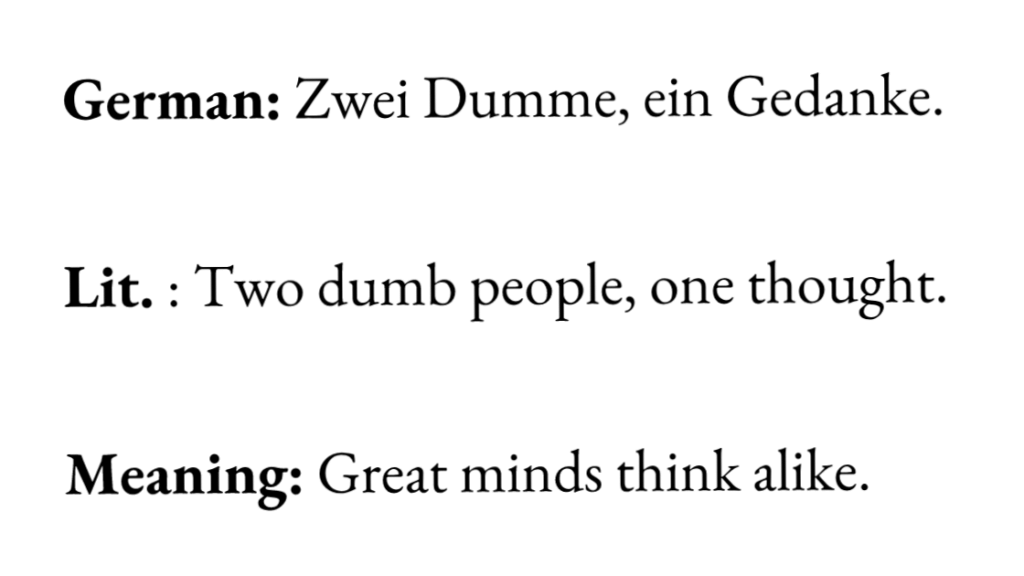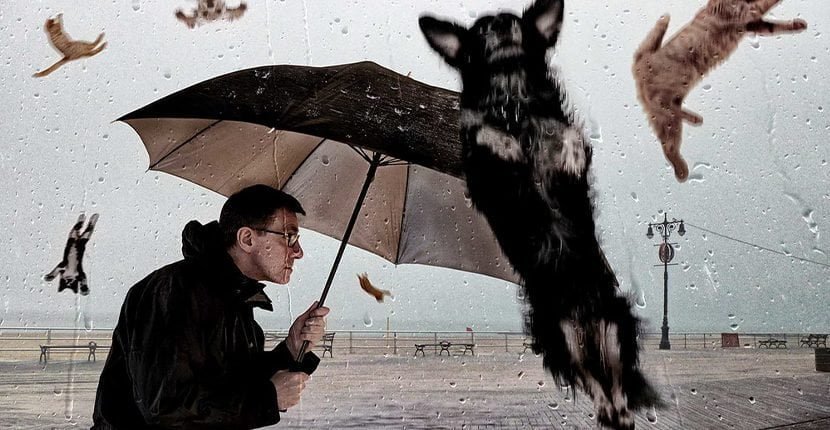Geoffrey Willans said, “You can never understand one language until you understand at least two.” If you think your language is unique because it has sounds and phrases that other languages can’t possibly have, you’re in for a huge surprise. The beauty of knowing other languages is that it gives you a unique perspective on how other cultures think and how they describe the world around them, which sometimes can be surprisingly different. We’ve all known of idioms and phrases that can’t be translated no matter what and that’s because of the simple reason that cultures are untranslatable. In this article, we have combined some of the most interesting non-English phrases from around the world and their literal translations to showcase how unusual other languages can be. Have a good read ?
1.

2.

3.

4.

5.

6.

7.

8.

9.

10.

11.

12.

13.

14.

15.

16.

17.

18.

19.

20.

21.

22.

23.

24.

25.

26.

27.








It appears that this list was drawn up and written by a non-native English speaker.
Some interesting words used!
Swedish “sit in butter” similar to French “avoir le cul dans le beurre”.
Hüftgold has a second, more common meaning in German: It’s the high caloric but irresistible food.
I was about to say the same myself!
(In fact, thinking back, I’ve said so in the past…)
If a nerd is, among other things, one intent on mastering the skills of a discipline, I’d rename the blog ‘… pre-nerds’.
(Also, when you point out a specific boo-boo, there’s rarely a subsequent rectification…)
Actually, here on the US West Coast I’ve often heard:
1) Not my circus, not my monkey
2) Sit in butter
Perhaps an immigrant or a former expat brought them to the West Coast translated them literally, and the sayings just caught on.
In Catalan, we use the same expressions as Italians to say there aren’t many people at a place: ‘Hi ha quatre gats’
Of course, English people’s foreign language skills usually don’t go beyond, ‘Una más, por favor!’
It isn’t Africaans, but Afrikaans, with a “k”.
Afrikaans, not Africaans. 🙂
They won’t edit it, though – never do…
(Maybe they don’t know how, or perhaps none of the ‘nerds’ ever reads our comments!)
I’m in the Rockies and “Not my circus, not my monkeys” is in fairly regular use around here too.
Interesting list, but I’m sad that the French ones are incorrect to my point of view (the one of a French person).
The most common expression for 27 is “Avoir le cul entre deux chaises”, even if it’s more vulgar.
As for 11 “LE cigare est au bout des lèvres”, never heard about it… and well, don’t want to use it 😉
“Att vara uppe i smöret” means “To be up in the butter”, in Swedish, comes from the fact that in the old days the staple food at a farm would be rye or barley porridge. This was either directly served in a heap on a large table or in front of every person. Everybody living on the farm, from the owners and their extended family, farmhands, milking girls and passers bye, who were invited, would share the meal. Mostly there wasn’t much else to eat. They would have a wooden spoon and scrape the table meticulously and with time a crate would be formed in front of each place – or if eaten from the large central heap, a piece of butter would be placed on the top. The person who was fast enough to get a some of the melting butter was the one who “was up in the butter” thus being lucky (some got no butter at all)… Today this means that the person who is “up in the butter” is lucky, but rather money-wise, than porridge wise.
In Italian too! “Avere il culo nel burro”
Tomaten auf den Augen haben is similar to Italian “hai le fette di salame sugli occhi” = you have slices of salami on your eyes
In 22 and 25 the Englisch equivalent and the literal meaning have been swapped by mistake.
And the Dutch “met zijn gat in de boter gevallen zijn”